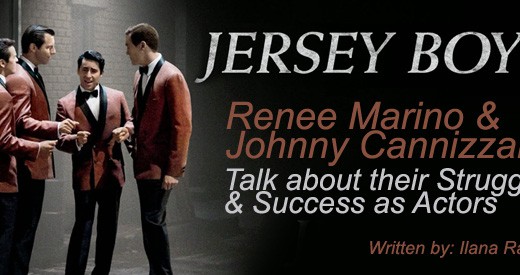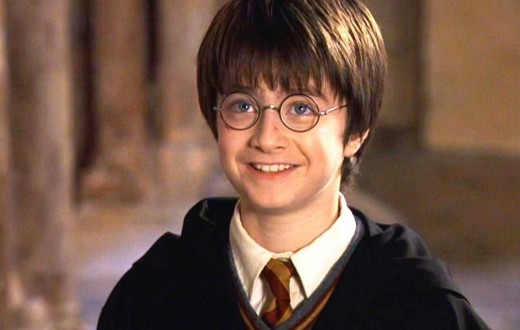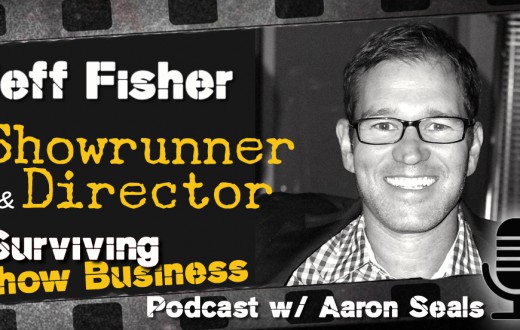Actor Marc Singer has a strong work ethic. He treats every project with the same dignity and respect, no matter how big or small the role.
It’s that intensity that allows him to fully embody the character and understand how everything in a production comes together. There is no in between. It’s his commitment and love for the business that’s kept Marc a successful working actor for five decades.
We have soooooo much to learn from Marc Singer, so let’s delve right into it!
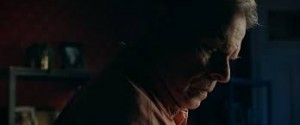
You recently finished working on Chad Darnell’s film, The Undertaker’s Wife, in which you play Sheriff Johnson. Chad Darnell, like you, is a very crafty storyteller. What type of conversations did you have with Chad about coming onto the project and your character?
It was our first opportunity to work together, Chad and I, and I think we both found it to be a pretty damn satisfying experience. He’d come up with a highly amusing film that’s both creepy and unnerving in a very interesting way. The leading characters all have hidden quirks and muffled secrets camouflaged in the white noise of their own consciences. This keeps a low, force-field kind of hum of anxiety generating between the story’s leads and everyone they interact with. It’s a kind of shared tinnitus which gradually infects the audience and gives the film a “Hitchcockian” thriller quality, which is the highest form of praise for any director, I would think.
But I have to add that from the very first day, both John Brotherton and Shannyn Sossamon (who head the cast) were extremely welcoming to me as a newcomer to the set: John, with the affability of a true pro, limitlessly expending his personal time and considerable talent in rehearsal until we had established a personal sense of familiarity and trust between us; Shannyn, with her instinctive feel for privacy in moments of prep, and the sharing rather than hoarding of her amazing on-screen charisma. I found this to be so throughout the cast and crew; everyone was there for the right reasons. I feel confident that it shows in the end result.
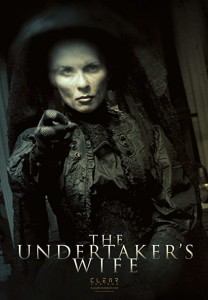
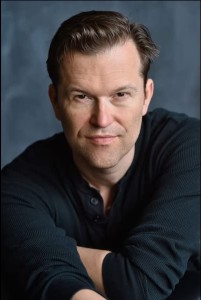
From Chad Darnell: I was so excited that Marc said yes to our little film. Of course I was a huge fan of his from BEASTMASTER and V, but he’s a classically trained actor and he’s the type of actor you WANT to work with. He came to visit set the day before he shot and would hang out on set when he wasn’t shooting. He’s a total pro, but also one of the kindest and gentlest talents I’ve ever worked with.
You seem to always put 100%+ into everything that has to do with your career, including interviews and conventions. You take a very personal route and don’t “hide” behind a team of people. It’s as if you have more than 24 hours in a day. Were you born with your commitment and dedication or was that learned? Do you ever get frustrated with people who don’t put their all into whatever they’re working on?
I appreciate the compliment, however poorly deserved. As for not traveling with an entourage, I experience life more personally that way and have the leisure to reflect upon it more privately. It also leaves me free to appreciate and value every single person I come in contact with on a one-to-one basis. I think everyone is special, and conventions and the like provide a forum to get out and mingle, and rejoice in that kind of fellowship.
And as for those who don’t try their damnedest? Well, sure it’s frustrating in a work experience, but, I, myself, have been both prodigal and profligate back in my ever-diminishing past, and it’s the traveling solito these days that encourages in me a desire for no more of neither. Instead, I try to be a man of my word, fulfill my obligations and hope that my word works for good – or at least works good enough. I don’t know how I got that philosophy, but I’m guessing my upbringing had a lot to do with it. That and the good fortune of meeting some fine mentors along the way. Other than my dad, I’d have to list so many more in that regard, that it’d just be a jumble of names, so just suffice it to say I’ve been well and truly schooled, and that some of it stuck.
When people see you, they immediately think of Shakespeare, The Beastmaster and “V”. But you’ve also taken part of an extraordinary amount of other theatre, television and film projects. Which projects changed your life? Did any of the productions bring you a new sense of awareness to life or your surroundings? How?
Most recently, I wrote a play entitled “Gary’s Place” (which was in rehearsal shortly before the Covid-19 pandemic closed so many public venues). And although I would say that successfully channeling an American play in the tradition of Arthur Miller or Tennessee Williams would be in and of itself enough to change anyone’s life experience… yet every performer worth their salt will understand me when I say that every project is a matter of life and death, because it’s our whole life that we’re putting on the line each time. It’s always a leap into the dark, a life changer. When the work stops being that, the job and its value becomes meaningless. Whether it’s the testing of an earlier conviction, or a lightning-flash illuminating a hitherto unknown territory, it should always be a resonating experience.
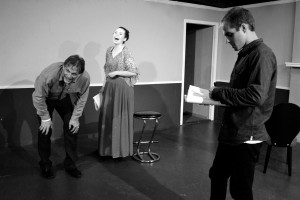
I also recently directed and played the lead, in Shakespeare’s “A Midsummer Night’s Dream”, followed hard upon by the title role in “Macbeth” – interspersed meanwhile with heading a performers’ workshop based on a text of my own devising entitled: “The System: How To Act Shakespeare” and heading a couple of symposiums at some universities, as well. In hindsight, all of that makes up a single life-changing experience, but just expanded over a period of time.
So, sometimes it’s hard to single out one or another in the ongoing movement of events, much less a particular anecdote from a set. I apologize for that, but sometimes it’s one thing, sometimes another. Working with Burt Lancaster, or Henry Fonda, or Olivia De Haviland, or Maureen Ohara, or Geraldine Page, or Patricia Neal, or Jack Warden, or Roddy McDowell, or Mickey Rooney were all life changers of a specific kind, but I have to leave those specifics and anecdotes for another time. Much as I would like to accommodate, there are sometimes just too many crowding my brain to choose from. Today’s one of those days, I guess. Again, sorry.
You’ve held your weight in volumes of Shakespeare during your career, with Troilus and Cressida being your favorite. What is it about this particular play that excites you? Why is it so important for actors to train in Shakespeare? In today’s world of screens, we don’t see too many up and coming actors doing Shakespeare. Is this a problem?
The eminent critic Harold Bloom (with whom I’ve had the honor of sharing some contact) takes the position that Shakespeare was almost solely responsible for creating the persona of modern humanity as we’ve come to identify it and be identified with it. I would heartily concur. Well, that speaks volumes about Shakespeare’s importance, and no doubt better stated than I ever could.
Of course, singling out any of Shakespeare’s plays as his “best” is purely subjective, but in all appropriate seriousness, I would posit that as the comedic obverse of “Hamlet’s” engrossing melodrama (considered by many his greatest play), I would contend that “Troilus and Cressida” more than holds its own – in fact, I believe it supersedes “Hamlet.” Here’s the somewhat anomalous reasoning that I believe supports that thought: Shakespeare constructed such a perfect play in the creation of “Hamlet,” that it essentially plays itself. In fact, it’s so damn good that virtually any adequately equipped actor can play it. All that’s required of Prince Hamlet is a sufficiently good memory, a passably good silhouette in tights, the barest ability to fence (depending on the staging) and an appropriately fetching and wistful “air” about him. The rest Shakespeare takes care of: the play’s so tight, it squeaks. Success in the role is virtually assured, no matter how close to stumblingly it may be performed.
“Troilus and Cressida,” on the other hand, is Shakespeare at his most blisteringly complex, insightful, challenging and sardonic – Shakespeare, himself, at his very peak best, in other words. The vocabulary and syntax are his most erudite, its subject of war the most historic, its prosecution the most cruel, its causes the most venal, its generals the most pitiless, its champions the most flawed, its heroes the most mythic, its humor the meanest, its insights the sharpest, its denouement the most abysmal.
And in contrast to any of the obviously risible gibes I may have poked at “Hamlet,” it takes giants to portray the characters in “Troilus and Cressida”. It’s women must be the most alluring, arresting and compelling, the champions the most imposing, the grotesques the most repellent, the idiots the most idiotic, the dilemma the most frustrating, their endeavors the most worthless, their gain the least, their ultimate victory the most costly and least worthwhile. These aspects in “Troilus and Cressida” present the greatest challenges to any troupe or company seeking to enthrall and entertain an audience.
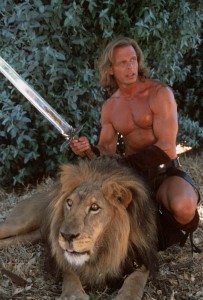
But speaking of audiences, meanwhile – for as it is a great play, so it deserves great audiences – they would need to be intellectually worthy of the dish being served. Enhanced by the degradation of funding for public education and a sheep-like acceptance of whatever fodder is placed before them – discerning audiences have become increasingly a dwindling resource. That few there are capable of understanding the greatness of this play (fewer yet capable of performing it – or of truly understanding so many of Shakespeare’s works in the first place), speaks to modern theater’s greatest and most frustrating shame: a cyclical vortex of the blind leading the blind into the abyss.
Problem is: I don’t know who to blame, much less who to warn. Shakespeare is dying and everybody’s looking the other way. The greatest writer, the most influential intellectual and worthwhile entertainer in all history and no one resonates to a methodical approach to understand what’s actually written on the page. Look: “Macbeth” as a mamma’s boy with an Oedipus complex? Are you kidding? Shylock as an unrepentant, unrequited loser and Portia as a mean-spirited anti-semite? Are you nuts? “Love’s Labours Lost” as a silly piece of romantic frippery? What’s going on here? “A Midsummer Night’s Dream” with a fairy land played as some anomalous background antics as disconnected to the rest of the story as a lone ice berg afloat in the mid-Atlantic? Help! The patient’s going into cardiac arrest!
Look: I come to this outspokenness in this way; I am a classically trained actor in the Stanislavsky method (the original “method” acting). While I won’t go into the quite logical interstices of this rational, rather than self-indulgent or emotive, technique (Stanislavsky’s arguably being the one Shakespeare would undoubtedly have originally endorsed), I will simply say that among its main tenets is the following: that the author’s words are the production’s bible, ruling all characterization and interpretive meaning. This persuades the actor’s ego to embrace the author’s actual intent in preference to any exercise of emo self-indulgence, modern trending, or any other tempting or artistic distractions – no matter how momentarily enticing or even effective (see “Hamlet”: “Speak the speech, I pray you…” ACT 3 SCENE 2.)
But before I go, I would like to add that in contrast to the Stanislavsky technique, the modern emphasis in acting these days (inclining, as stated toward random psycho-self-involvement and metaphysical self-aggrandizement) twists every role to suit the actor’s self, rather than the other way ‘round. This may work on film – a medium heavily indulgent of markets and fandom – but it is the death of legitimate theater, and more specifically Shakespeare, the single most significantly important and influential playwright (or author, for that matter) in the entire history of the world.
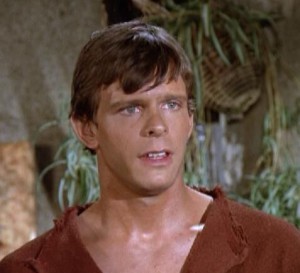
Having been in show business for the better part of your life, how has the industry shifted?
The lights! OMG! Why, the lights that were required in the past could melt a candle at a hundred paces! They could ignite your hair at a fifty yards! Makeup ran in rivers down your spine. Retinas cringed in pain. The lights! Those damn lights! Whew! Now you can film practically in the dark.
No smoking on the sets! Used to be clouds of it! Butt cans everywhere! People thought Tony Randall (“The Odd Couple” TV series) was being persnickety when he asked that the set be smoke free. Now? Ahhhhhhhhh.
At what point in your career did you decide to do your own stunts? Did you ever have a stunt double? If yes, in what? Did production need to purchase an extra type of insurance to cover you doing stunts? Have you ever teamed up with a stunt person to show you the ropes?
Every actor wants to do all their own stunts. We all do… except the ones that might get us killed. We leave those to the Buster Keatons and the Jackie Chans of the world. But in the main, an actor’s “stunting” is a basic requirement in the making of a successful film. And there is always a bit of choreography of our own that we like to suggest now and then. Any actor might do that from time to time. It puts them at the heart of the action… and it’s challenging and exciting, and a moment of pride in the accomplishment, and just plain fun… mostly. And the best stuntmen welcome it, as long as it’s offered respectfully and in keeping with the needs of the production, the scene and the character – which is why actors suggest that they perform as many of their own stunts as possible in the first place. But, even so, I’m pretty sure I’m not the only actor who’s suffered broken bones and other such-like injuries from mistakes in action sequences. The trick is to grin and bear it. The highest praise (when you might at the time be picking yourself up in pieces off the floor) comes in the form of a quote issued by many a stunt man in days of yore: “You know, son, that would’a killed an ordinary man.”
Well, maybe. But what might kill even a not-so-ordinary man is not paying attention when a stuntman gives you advice. (Or getting “chesty” with one. That’s rarely a wise choice, I’ve heard.) But, generally, they like to help a fellow out, and they’ve taught me a few tricks over the years that have kept me in the game when being laid up represented the only other real option. Mainly, though, they’re to be admired and respected.
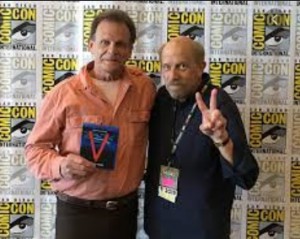
It’s time to discuss Kenneth Johnson, the writer, producer, director who cast you in “V” as Mike Donovan. Did you have an audition? If yes, where was the audition held? Were you given any details or sides? If sides, were you off book at the audition? Did you have any developmental discussions with Kenny or any of the other actors about how a scene or characters could be improved? What was the feeling among the cast when you found out that Ken Johnson would not be working on V: The Final Battle or V: The Series? What about V: 2009?
Kenneth Johnson is a towering genius and a patient, kind and generous man. He has been everywhere, seen everything and knows everybody. He has read everything and written everything else, and if he hasn’t yet, he will. He is a powerhouse of energy and loves making films. His talents are enormous, his abilities co-equal to them. He’s exhausting just to think about, and if he weren’t so inspiring, I wouldn’t have to. Kenny.
When I “auditioned” for “V” before the network president Brandon Tartikoff, Ken Johnson read my part, as well as everybody else’s in the scenes and then pushed me out of the room with the words “Isn’t he terrific?” ringing in my ears. To this day I’ve never asked if he meant the character on the page (his creation), or me (who barely got a word in), but I am consistently resolved about one thing: when Kenny wants a thing, he gets it. And in this case it was an extremely fortunate young actor named Marc Singer. Kenny.
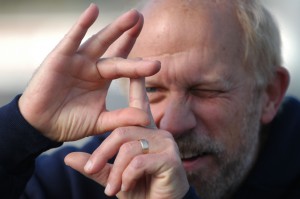
From Kenneth Johnson: Actually, as I often do, I was talking about myself, “Isn’t HE” (pointing at my own chest) “terrific?!” — As if. — Of course I was talking about Marc, who in fact was entirely terrific.
From the very first moment Marc totally inhabited the character of Mike Donovan and he completely nailed the audition. Plus he was one of the greatest artistic collaborators I’ve had in my entire career. An amazing talent and, I’m privileged to say, a dearest pal to this day and evermore.
Kenny / www.kennethjohnson.us
And as for “V”: Kenny’s absence from the helm of his master creation was keenly felt from the moment he left. His cast went into the second mini-series with, as I remember, only the raw draft of a working text to guide us. I remember “x-ing” out many whole paragraphs of my own dialogue that had never had the chance to be condensed, only moments before filming the scenes in which they were to have been spoken (always in consultation with the director, however) – whereas I don’t remember ever having the impulse to change a single word of Kenny’s finished product in the original. Ever. Kenny.
He’s kept in touch over the years, suffering my inflated bumptiousness with an understanding patience and an endurance equal to the Buddha, continues to define and even enhance my place in the industry and art of film making… sometimes merely by shedding light in my direction. That I was fortunate enough to be dubbed “Mike Donovan” by him I count the highest honor, the award of a lifetime; for, in many ways, Kenny created the me that I represent today. Kenny.
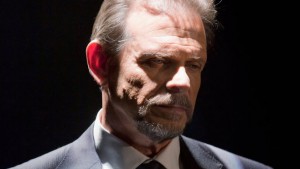
And as for Lars Tremont? It was my hope to influence the re-boot series to travel a direction more in keeping with what I saw as Ken Johnson original intent, but there was no time for that, the plug was pulled. Yet now Ken Johnson will have another chance to grab the wheel and right the course. My thought remains: what Kenny wants, he usually gets. Mr. Kenneth Johnson.
In “V”, there are some scenes where it appears that you’re “posing” instead of moving naturally. Was this intentional, and if yes, why?
I’m flattered that whatever it is it’s eye-catching enough to bear comment. What I think you see (more in the later episodes of “V”) is an actor trying his best to make sense of and contribute to something in a story line that felt like it was continually shifting like sand beneath his feet – mainly as an increasingly struggling series wore on. It had changed significantly after Kenny Johnson’s (the show’s original and brilliant auteur) departure, and I will confess that sometimes the very genre seemed to alter from episode to episode – at least it occasionally seemed so to me. Maybe it was the long hours, but in some (as time wore on) I felt more like a member of the Alvin Ailey dance troupe than a member of the original “V” cast, and in others, more like a “Mutant Ninja Turtle.” Sometimes, it felt like we were “Adam Twelve,” and others, “The Lone Ranger.” Once, we might even have been “Animal House,” I forget.
But those who are familiar with the glory days of the World Wrestling Federation (the old WWF – Hurrah!) will understand that all performers work to synthesize a persona whose centrality best informs their work from then on, moment to moment, engagement to engagement. That’s how Steve Austin eventually metamorphized into “Stone Cold”, and Dwayne Johnson became “The Rock.” Well, developing a filmic career can be like that. So, like Stone Cold, or The Rock, I give everything my best shot, and stand by every scene, all my colleagues and fans, at every moment. Acting, like the business that has grown from it, is an ongoing search, a development, and those who expect one size to fit all are likely to end up with bunions.
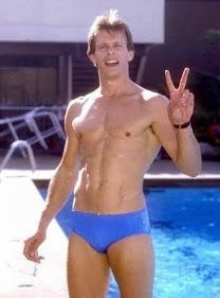
Let’s talk about the infamous bathing suit you wore in NBC’s Battle of the Network Stars. a) What the blip were you thinking? b) Who picked out that suit for you? c) Did you have any idea at the time that 37 years later people would still be talking about that? d) Did you receive any over the top, crazy fan mail because of your appearance and performance at BotNS?
Two thoughts: the first is that our team had just completed the swimming race (under the able command of Mark Harmon, with me swimming the double anchor lap – and setting a new record, as I recall). In those days Speedos is what all Olympic swimmers wore, and if it was good enough for them, it was good enough for us. It may have been a fun venue, but the young men and women participants took the competition seriously. Besides the bragging rights in the full glare of public exposure, there was good money in it, in those days. And – as only recently have competitive swimmers togged out in performance-enhancing, space-age swimwear – by the standards of the ancient Greeks (inventors of the original Olympics) that Speedo would’ve seemed like formal wear, a veritable tuxedo. S-o-o-o, given our modern perspective, I wonder in this day and age (when so many talented and truly beautiful celebrities are practically elbowing each other aside to see who can appear most glamorously naked in a variety of public venues) that my modest appearance in a Speedo, in the legitimate context of its day and place, would cause any comment or attract any notice at all.
But I have to say, focusing on it does force me inescapably to a second thought, which is a prompt for a more honest appraisal from any of the recalcitrant few who would prefer to remain “aghast..?” And that second thought is this: You wish.
You were born in Vancouver, British Columbia and raised in Corpus Christi, Texas, along with your two brothers Claude and Gregory and your sister, Lori. Your father, Jacques Singer, was a virtuoso violinist, symphony orchestra conductor and music educator, while your mother, Leslie was a concert pianist. Your dad was awarded jobs all over the world which kept your family moving. Tell us about your childhood and what it was like growing up in a household filled with music. Do you yourself play any instruments?
I led a “Huckleberry Finn” existence as a child on shores of the Gulf of Mexico, back in the days when there were only 48 states in the union (which Texans, being citizens of the largest, never missed an opportunity to remind everybody else of at every opportunity). I rode horses, swam in the “Gulf”, fished, sneaked cigarettes, scuffled with the other boys in the neighborhood, played sand lot baseball, spent summers on my grandparent’s farm, collected pollywogs and lizards, kissed the girls and barely passed from grade to grade, narrowly escaping summer school on more than one occasion.
By way of contrast, though, night times my father would stand playing the violin next to my mother at the piano, while my older brother and I would lie on our backs beneath the sounding board – as close to being inside the piano as humans could possibly get.
In the meantime, I was gaining a sort of inside exposure to performances by the greatest classical musicians of the day, was memorizing Shakespeare by the fifth grade, read voraciously, learned to play (and am now composing on) the piano, experienced every “Twilight Zone” in its first-ever airing, and even experimented with writing. And when the family said good-bye at last to Texas and moved on, I reinvented myself, started over, grew a few inches and scuffled some more, and then discovered acting – thanks to Mr. John F. Lehman of Lincoln High School in Portland, Oregon. A great man running a great program in a great public-school system. He is gone now, and much missed, but never forgotten.
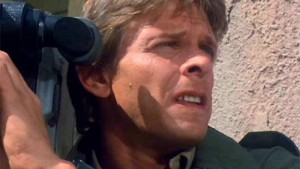
On November 23, 2014, your wife of 40 years, Haunani Minn, passed. Please share some highlights of your life with Haunani, who was also an actress. In the beginning, was there ever a struggle to make ends meet financially with two actors in the house?
Haunani was the highlight of our marriage, full stop. We travelled together in a battered Volkswagon up and down the west coast working one great regional theater after another: Seattle, San Diego and San Francisco, before settling in L.A. Other than our little car (a generous gift from her father), we owned two suitcases, a vacuum cleaner and a dog. The money we made as actors in those days was hardly enough to sustain us, but I do remember one summer renting a sunny, fully furnished efficiency apartment in San Diego, one-half block from a secluded cove on the sparkling Pacific, for one hundred and thirty-five dollars a month. We were both featured cast members at the Old Globe Theater, performing strictly Shakespeare to packed houses. We lived in paradise that summer.
Respectfully, I’ve heard that some acting coaches say to channel personal pain into your characters to bring them to life the most realistic way possible. Did you at any point in your career use this tip? Which characters and how so? What real life memories did you use?
Every human being channels every experience into everything they do – whether consciously or unconsciously. It’s called life. What makes acting different is that we’re required to export our experiences directly into our work. And while I. think that too much, in the way of acting myth, is made of pain and personal angst or anguish, well that may be because acting is a hard craft to master – and a difficult and uncertain economic life to endure, on top of it. But if that is the case, then focusing on pain is like gilding the lily; it robs life of joy and optimism, and can lead to gloomy self-indulgence and misdirection. In point of fact, I would suggest that any actual pain (physical or emotional) should be no more fascinating than any other experience; merely an observable happening among any infinite number of available others for an actor to draw from or replicate… but no more so than a hearty belly laugh, the feeling of religious awe, or any other notable moment that that old hand, Chance, deals from across the table.
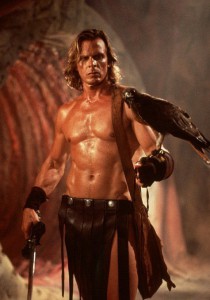
How important is it as an actor to keep your mental and physical health in order? Do you have any particular routines you can share?
I wouldn’t know. I’m certifiably crazy and preternaturally lazy. I don’t do anything unless I have to. It’s the requirements (and fascination) of the profession that keep me at it, whatever it might be. Kung Fu remains my chiefest source of longevity (as long as I’m spared) and Grand Master John Leong of the Seattle Kung Fu club the man I owe the greatest debt to in the daily continuance of my physical continuance and mental endurance. My father inclined me toward Shakespeare, William Duncan Ross (The Seattle Rep) taught me how, and Bill Ball (The American Conservatory Theater) schooled me in the development of real-world theater craft. That covers a lot of ground in a few names.
Anything else you’d like to say?
If you want to be a real actor, read Shakespeare like he’s never been read before. And I mean that.
Readers – here’s a clip of Marc Singer and Fredi Olster in the 1976 stage production of Shakespeare’s “The Taming of the Shrew” at the American Conservatory Theater in San Francisco.
Click HERE to see the clip of MARC SINGER in The Taming of the Shrew.


